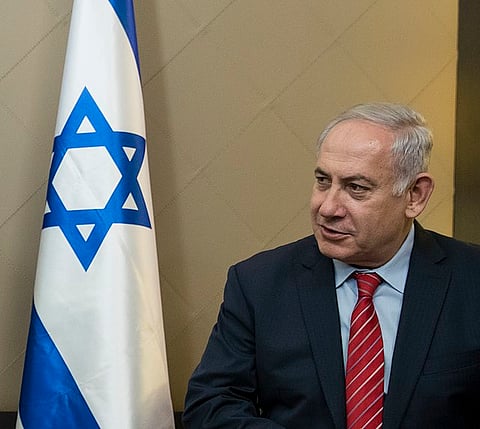

Israeli Prime Minister Benjamin Netanyahu arrived in Hungary on Thursday for a four-day state visit, in open defiance of an International Criminal Court (ICC) arrest warrant accusing him of war crimes. The trip coincides with Hungary's announcement of its formal withdrawal from the Rome Statute, the treaty that underpins the ICC's authority.
Despite being a signatory to the Rome Statute, Hungary has made clear it will not comply with the court’s demands to arrest Netanyahu. Defense Minister Kristóf Szalay-Bobrovniczky greeted the Israeli leader at the airport, and Hungarian Prime Minister Viktor Orbán later posted a photo with Netanyahu, describing Budapest as “the safest place in Europe.”
The ICC has charged Netanyahu and former Israeli Defense Minister Yoav Gallant with alleged war crimes during Israel’s military campaign in Gaza, launched in response to a deadly Hamas-led incursion into Israeli territory in October 2023. Among the charges: the use of starvation as a weapon, a serious violation of international law. Israel has rejected the accusations, calling them politically motivated and rooted in anti-Israel bias.
Budapest’s withdrawal from the Rome Statute represents a sharp rebuke to the ICC’s authority and aligns with Orbán’s growing criticism of international institutions. The Hungarian leader had hinted at such a move earlier this year, but Netanyahu’s visit appears to have accelerated the process. The timing has drawn international scrutiny, raising questions about the rule of law, European unity, and the future relevance of the ICC.
This is not the first time Netanyahu has avoided arrest abroad. In January 2025, protests erupted in Poland ahead of his expected attendance at the 80th anniversary of Auschwitz’s liberation, with activists urging Warsaw to honor the ICC warrant. However, the prime minister ultimately did not appear at the event, sidestepping the issue entirely.
While facing pressure internationally, Netanyahu is also under fire at home. He continues to battle long-running corruption investigations and is now implicated in a new scandal dubbed ‘Qatargate’. The case alleges that close aides accepted payments from Qatar in exchange for promoting Doha’s interests within Israeli politics. Netanyahu has dismissed the accusations as a “fabrication,” blaming internal political rivals, including Shin Bet chief Ronen Bar, whose recent dismissal attempt was blocked by Israel’s High Court.